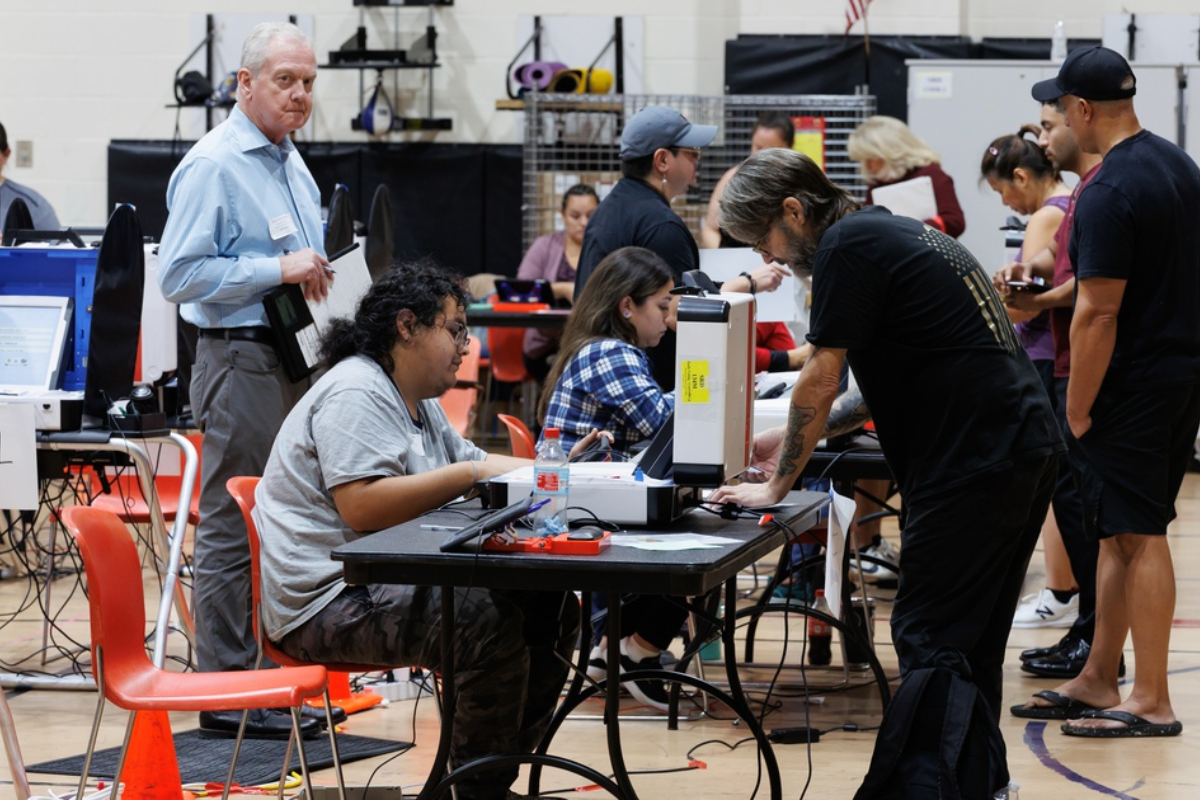Texas Lt. Gov. Dan Patrick and other conservative lawmakers have worked to reform the state’s voting laws since the 2020 election, despite the lack of evidence of widespread voter fraud in Texas.
On Monday, the Texas Senate gave preliminary approval to legislation that would increase the penalty for voting illegally from a misdemeanor to a felony. A person guilty of the offense could receive up to 20 years in prison and fines of more than $10,000 if Senate Bill 2 is passed into law.
Is Constitutes Illegal Voting Was An Important?
What constitutes illegal voting was an important topic of discussion during Monday’s floor debate between Democratic members and the bill’s author, Sen. Bryan Hughes of Minnesota. Politicians disputed whether the plan would allow for criminal prosecution of someone who casts an unintentional illegal vote.
Democrats cited instances like someone aware that they have been convicted of a felony but are unaware that their ineligibility for voting stems from that conviction or someone aware that they are not a citizen of the United States but are unaware that their ineligibility stems from that as examples.
Democrats in the legislature expressed concern to Hughes that these voters would face legal action for their “innocent errors.”
“I just would ask you to consider the unintended consequences of your proposal,” Sen. John Whitmire, D-Houston, told Hughes. “We’re all against voter fraud. But to give it the gravity that you are today really frightens some of us who have worked with voters that are just not going to be as informed as perhaps you assume they are, such as someone coming off of parole, such as a 17-year-old high school student.”
Others questioned Hughes’s opinion that raising the fine would prevent voters from casting a ballot. Who are the voters you’re referring to? said Hughes. “The aim is to stop unauthorized votes. Please understand that I wish to stop illegal ballots, regardless of who they are for or against.
Sergio Martinez Beltran tweeted that a bill that would restore the felony penalty for illegal voting. You can take a look below:
The TX Senate is debating SB2, a bill that would restore the felony penalty for illegal voting.
Sen. Bryan Hughes (R), author of proposal, when asked why not keep it a misdemeanor, something the #txlege voted in ‘21, says “issue was not debated” then through normal lege process. pic.twitter.com/P113ZqwXfF
— Sergio Martínez-Beltrán (@SergioMarBel) March 13, 2023
Hughes defended the legislation time and time again, saying that people would only face legal action if they “knowingly and purposefully” cast invalid ballots. Sen. Joan Huffman, a Republican from Houston, reaffirmed that a prosecutor would consider all relevant factors.
Hughes reaffirmed that the bill did not represent a “radical change to the law.”
“We are restoring the law to what it was,” he said. “It makes sense. It’s consistent with other criminal statutes.”
Hughes’ measure adds the “intent requirement” to the law. A two-year-old rewriting of the state’s election rules makes it a crime to “knowingly or willfully” vote or attempt to vote in an election in which the individual “knows they’re not eligible.” Hughes’ bill would add “the individual aware of a particular condition that makes the person not eligible to vote” to that language.
After nearly 50 years, the 2021 legislation decreased illegal voting from a second-degree felony to a Class A misdemeanor. A tiny modification in an omnibus voting package remained overlooked until Gov. Greg Abbott signed it into law.
You could also consider the following:
- A Sad Chapter In Music History And Andy Gibb’s Death
- Austin Homeowners Challenge City Policies Allowing More Housing Development
- Texas EquuSearch Joins the Hunt for Missing Georgia Man in Louisiana
SB2 was his legislative priority this year. Republican lawmakers in both chambers introduced many similar bills. In January, Rep. David Spiller, R-Jacksboro, who sponsored a House bill similar to SB 2, said heavier penalties were needed to “ensure that we have safe and secure elections.”
Voting rights advocates applauded lawmakers who opposed the bill for raising the possibility of “rogue prosecution of voters” on Monday. Common Cause Texas voting rights program manager Katya Ehresman said everyone knows a voter, friend, or neighbor who could be affected by the current legislation.
Ehresman said 65- or disabled-aged people might vote absentee by mail. They may vote in person and cast a provisional ballot if they can’t tell if it was received or counted.
“That voter could be liable under SB 2 for a felony penalty” because they were aware they had already cast a ballot by mail, Ehresman said. “Especially if their mail-in ballot was counted that same day. That’s one kind of concern that we potentially see with SB 2.”
Hughes stated on the floor on Monday that it would not be sufficient to punish voters if an invalid voter attempted to cast a provisional ballot, which is frequently discovered before it is counted.
“But we saw with Crystal Mason that’s clearly not the case,” Ehresman told Votebeat and the Texas Tribune. “And so really any Texan could be susceptible to risk and to fear of penalty if this becomes law.”
After receiving a five-year prison sentence for voting illegally in 2016, Tarrant County’s Crystal Mason’s case garnered state and national attention. Mason voted provisionally while on supervised release following a federal conviction, unaware she was ineligible.
Mason faced a second-degree state crime. The Texas Court of Criminal Appeals requested a lower appeals court to examine the case because she didn’t know she could not vote. Her case is pending.
Stay tuned for more latest updated on our website kerrvillebreakingnews.com.




